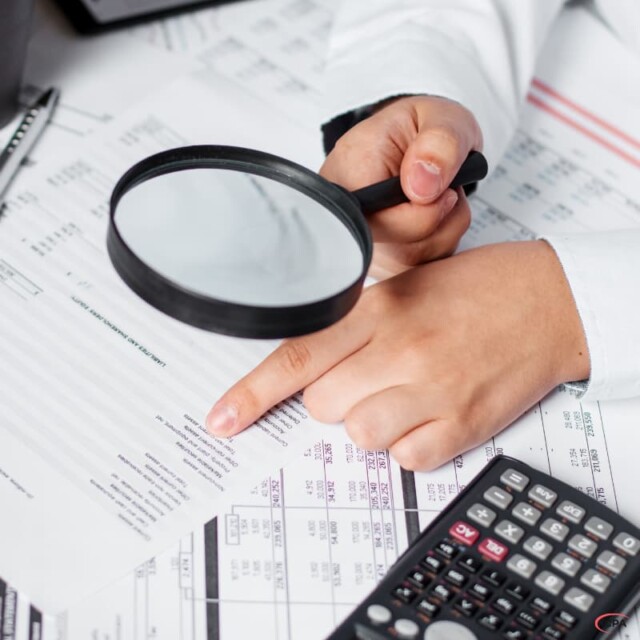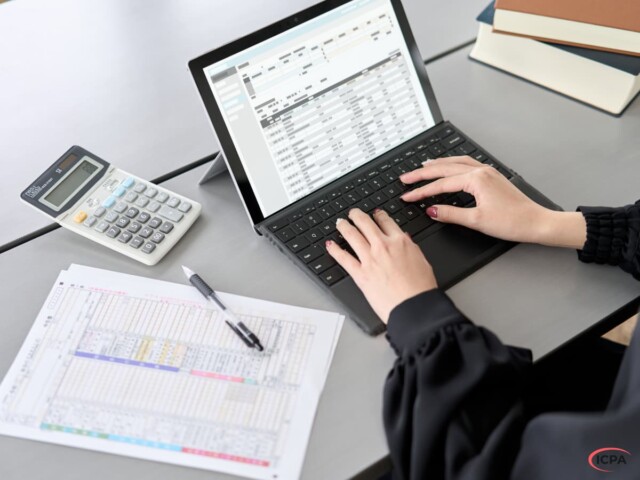Charity Independent Examinations: A Guide for Accountants
Every charity must, by law, have its accounts scrutinised by an external body to maintain public confidence in its spending.
For many types of organisations, this scrutiny would be in the form of an audit – and for some charities, an external audit is indeed required. However, others can opt for a simpler (and less expensive) solution in the form of charity independent examinations.
Our charity independent examinations guide for accountants describes who is eligible, the legal frameworks and thresholds, a step-by-step guide to conducting charity independent examinations, and more.
What is an Independent Examination, and Who is Eligible?
An independent examination is a simpler alternative to an audit for a charity. It is designed to demonstrate to stakeholders, funders, trustees, beneficiaries, and members of the public that a charity’s accounts are in order.
Charity independent examinations are based on the charity’s annual accounts, as well as any disclosures or unusual items that have been identified. While the examination must be conducted in line with regulatory requirements, there is no need for the examiner to give an opinion on the truth and fairness of the charity’s accounts.
In addition to establishing compliance with regulations, the examiner should examine the accounts alongside the trustees’ report to check that they are aligned.
Who Needs an Independent Examination?
It is generally the size of a charity that determines whether it needs an independent examination or an audit. In England and Wales, a charity can generally opt for an independent examination, providing:
- Its gross annual income is under £1m, or
- Its aggregated asset value is below £3.26m – or if the assets are higher than this threshold, gross income is below £250,000.
If a charity’s gross income is below the £25,000 threshold, an independent examination is not required. However, governing documentation may require that an audit be conducted. Furthermore, the rules in Northern Ireland and Scotland are different from those in England and Wales.
Who Can Do an Independent Examination?
The individual who conducts a charity’s independent examination must, as the name suggests, be completely independent and impartial.
Perhaps surprisingly, if a charity’s income is below £250,000, the examiner need not be a qualified accountant. The Charity Commission recommends, however, that an examiner with a relevant professional qualification be chosen.
Where a charity’s income is higher than £250,000, the examiner must be either a Fellow of the Association of Independent Examiners or a member of a specific accountancy body.
Receipts and Payments vs Accruals Accounts
Charity independent examinations can be conducted based on receipt and payment or accruals accounts.
Smaller charities whose income is up to £250,000 per year may use the receipts and payments method. This uses a simple summary of the money that has been received and paid out during the accounting period. However, incorporated charities – and those with a higher income – must work instead on an accrual basis
Conducting the Examination: A Step-by-Step Approach
Our charity independent examinations guide for accountants includes seven steps that will aid you in conducting an examination:
Step 1: Preparation
Start by familiarising yourself with the charity: its activities, its structure and its financial systems. Next, be sure that you are up-to-date with the required legal framework governing charity independent examinations, as well as the relevant standards.
When this is complete, request all of the required financial records from the charity. This will include their annual accounts, invoices, receipts and bank statements.
Step 2: Planning
With this information in hand, you can determine the scope of your examination and identify the material aspects based on the complexity and size of the charity. Using your understanding of the charity, identify any areas that may be at higher risk of non-compliance or misstatement.
Step 3: Examination Process
There are five stages of the examination process:
- Verifying transactions: checking a sample of the charity’s transactions to ensure accurate recording and appropriate supporting documentation.
- Reviewing compliance with laws and regulations – as well as the charity’s own governing document.
- Assessing receipts and payments (only applicable to those using receipts and payments accounts). Here, you should check for accuracy and completeness.
- Examining accruals accounts: If the charity is using this method, review how income and expenses have been recognised. Check they are allocated to the right period, and that they comply with the relevant accounting standards.
- Checking bank reconciliations: establishing that these have been performed correctly and reconciling with both bank statements and the cash book.
Step 4: Review of Controls and Policies
At this stage, you should assess the charity’s internal financial controls to ascertain their effectiveness – and to identify any significant weaknesses. You should also review accounting policies to confirm that they are appropriate and applied consistently, as well as review the significant estimates made when preparing the accounts.
Step 5: Reporting
When you draft your report, it is vital to state whether you have found anything suggesting that the charity’s accounts do not meet requirements or that they contain material misstatements. Before you finalise the report, any significant concerns or issues should be discussed with charity trustees.
Step 6: Completion
When finalising the report, ensure that it meets legal and regulatory requirements and clearly explains the outcome of your examination. Then, alongside any other required documentation, provide the final report to the charity.
Ensure that you keep detailed records of your work, including information about how you addressed any significant issues.
Step 7: Follow-Up
If you have identified areas for improvement, you should work with the charity to address these. It may be that you provide guidance or recommendations for rectifying issues or strengthening controls.
Key Considerations When Performing an Independent Examination
The key areas to consider when performing an independent examination are:
- Developing an understanding of the charity
- Materiality
- Comparisons with accounting records
- Transactions in accordance with the charity’s trusts
- Analytical procedures
- The form and content of the accounts
- Accounting policies, estimates and judgements
- The trustees’ annual report
- Related party transactions
- Whistleblowing
Independent Examiner’s Report
The exact format and contents of your report will be determined by the specific regulations you are working within. You should always sign the report personally rather than as a business and record your professional qualifications and any professional body membership when you do so.
Common Findings and How to Address Them
There are various issues that you may discover during the examination, such as:
- Accounting records failing to be kept in accordance with the Charities Act (or Companies Act, depending on the organisation type).
- Accounts that do not comply with the accounting records.
- Accruals-based accounts that do not comply with the 2008 Regulations in terms of form and content.
- Charitable company accounts that do not comply with Companies Act section 396.
- Material inconsistencies between the accounts and the trustee report.
- A failure to receive information or explanation from officers, trustees or employees that is necessary for the examination.
- Material expenditures or actions which are not in accordance with the trusts of the charity.
You will need to document the nature of any such issues you discover, as well as their predicted impact on the charity’s accounts. In some situations, you may wish to confer with charity trustees to include any information that may have initially been missed.
Reporting and Documentation Best Practices
All reports must be set out in a way that complies with 2008 Regulations. The report should be addressed to the charity’s trustees and will be completed differently for non-company charities and charitable companies.
The Government has provided example examiner reports in their CC32 guidance, which you can see here.
The Role of Technology in Streamlining Examinations
The use of technology can make the process of charity independent examinations far simpler. If a charity uses accounting software and automated functionality via cloud technology, it can not only help them to keep their accounts accurate and compliant, but it can also make your job as an examiner far easier.
Such technology allows you to easily access all of the information and data you need from wherever you are, improving your efficiency and accuracy.
Why Join ICPA: Advantages for Professionals in Charity Accounting
You’ve read through our charity independent examinations guide for accountants…but what if you need more support? That’s where the ICPA comes in.
Our members enjoy access to a huge number of accounting benefits, all under one roof. These include resources, support, and networking opportunities, making conducting charity independent examinations far easier and ensuring compliance.
We offer consultations with experienced accountants on all manner of topics, as well as expert-staffed helplines, professional indemnity insurance and a range of events to help you with all aspects of your accountancy career.
Click here to talk to us about what the ICPA can do for you.
FAQs on Charity Independent Examinations
What is the difference between an audit and an Independent Examination?
An independent examination is a simplified version of a full audit and requires less scrutiny. It is only appropriate for charities whose income and asset holdings are below a certain level.
Can a charity choose not to have an Independent Examination?
If a charity meets the criteria for independent examination, this is a legal requirement.
How often should an Independent Examination be conducted?
An independent examination should be conducted each year, providing the charity’s annual income is higher than £25,000.
What are the consequences of not complying with Independent Examination requirements?
If a charity is required to undergo an independent examination and does not comply, the trustees will be in breach of their duties. The Charity Commission may penalise those who do not comply, and a failure to undergo an independent examination will also badly affect a charity’s reputation.
Can an Independent Examination be conducted remotely?
Yes, this can be done remotely; however, many examiners choose to examine charities closer to home.
Get the latest news direct to your inbox
Sign up to our mailing list to receive weekly bulletins on all of the latest accounting news.
"*" indicates required fields







